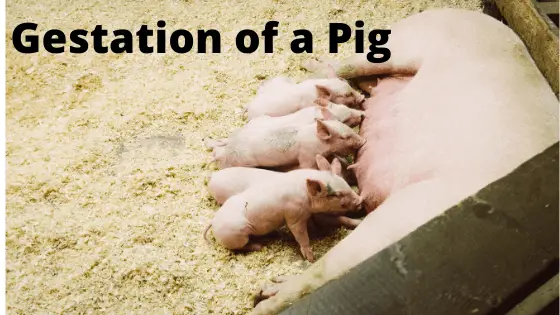How Long is Gestation Period for a Pig
Gestation Period for a Pig – If you’ve always wanted to have a deeper knowledge about the gestation period for pigs, and how they get to reproduce piglets, then this article is meant just for you.
The gestation or you can say the pregnancy period of a female pig is always 114 days. And as soon as she has delivered, she will be all set to breed another time at about 5-7 days after her infant pigs are weaned (taken away from her nursing). In other words, if you happen to wean the litter of pigs at 21 days of age, she will get into estrus (heat period) at about 26-28 days after giving birth (farrowing)
Thus, we are going to cover areas like the gestation period for pigs, the major benefits you stand to gain by raising pigs, and the pig’s production cycle length, where we will get to discuss the 6 life stages of pigs’ production. Without any further ado, let’s get started!
Gestation for pigs
The length of time for a sow or you can say the gestation period of a female pig is always 114 days. And as soon as she has delivered, she will be all set to breed another time at about 5-7 days after her infant pigs are weaned (taken away from her nursing).
In other words, if you happen to wean the litter of pigs at 21 days of age, she will get into estrus (heat period) at about 26-28 days after giving birth (farrowing)
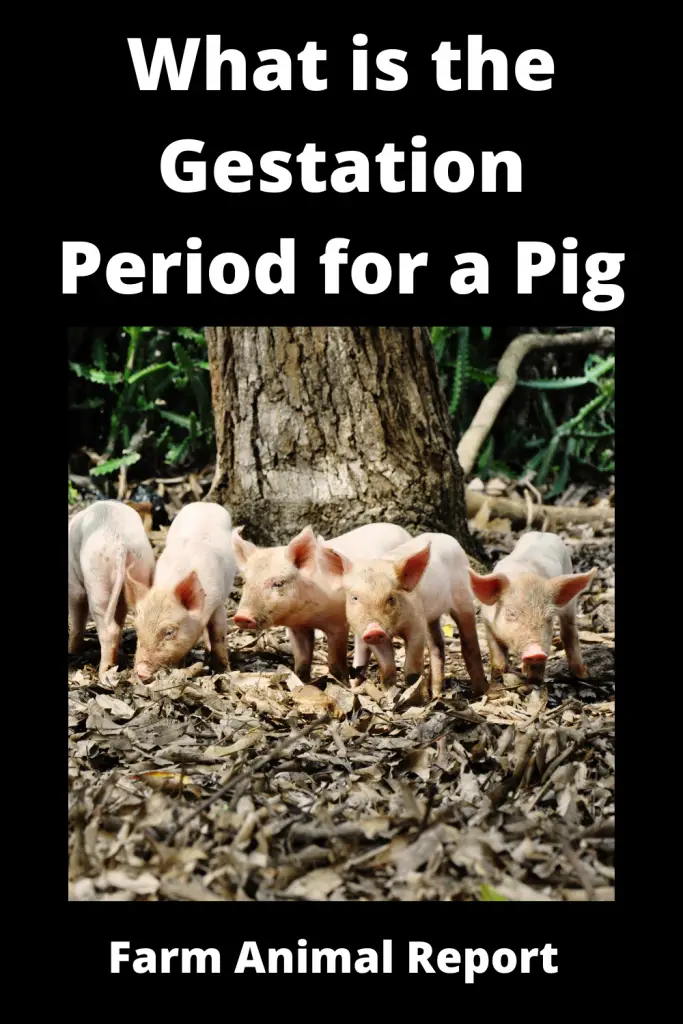
See Our Guide – 13 Ways to Make Money Pig Farming
Benefits of Farming Pigs
One of the major benefits you stand to gain when farming pigs, is in their ability to reproduce more often than other livestock species.
Put differently, sows(female pig) can produce more than two litters each year, thus ranking them as the highest productive species.
Also, the life span of a pig right from conception to birth, down through its growth and then death(slaughter), can take up to 310 days in total only.
Plus, unlike other livestock, pigs breed at any time of the year, irrespective of the season, whether hot or cold.
However, if you’re farming some pig or you’re about to start your own sty or pigsty, you need to know that pigs can be affected by seasonal infertility in the warmer months, that is, during the harsh summer weather.
And also, you have to understand that as soon as a sow has been mated, the production cycle starts from there, and is often completed when those piglets get to a ‘sale weight’.
At this stage, the pigs won’t grow more than the size you have, and you should start making plans to sell it out.
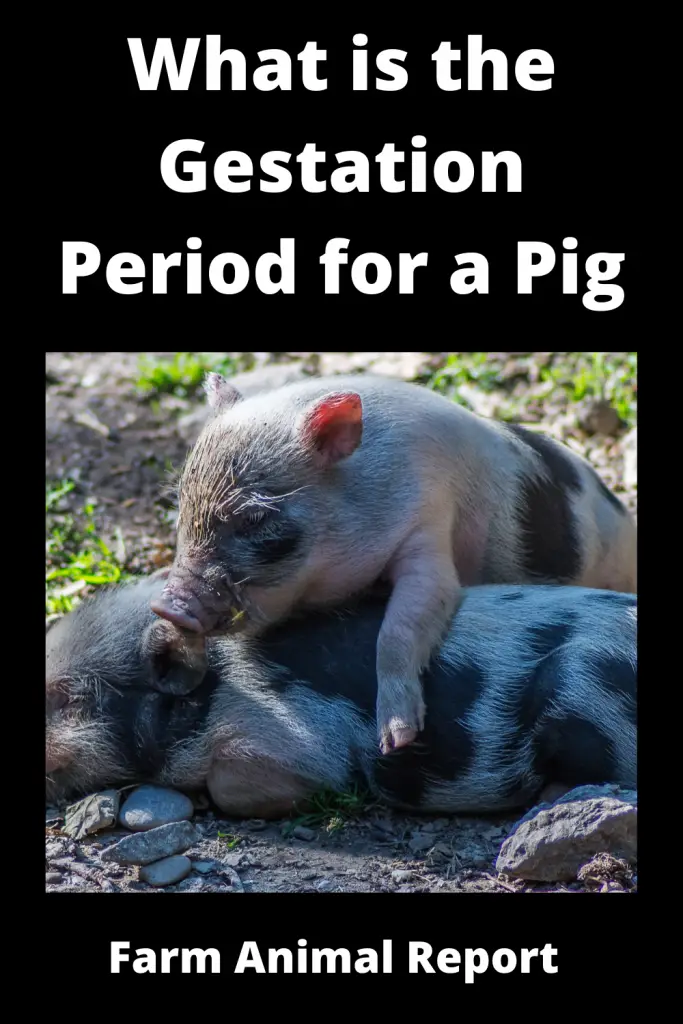
The Pig production Span length
Unlike other livestock, as we’ve been stressing since the beginning of this writeup, pigs’ production of the piglets isn’t a single act. Rather, its production cycle can be subclassified into six distinct life phases, which include;
1. Breeding/mating:
Female pigs that have not previously farrowed or given birth before(Gilt) are often introduced to boars( an uncastrated male pig) when they are about 25–28 weeks old.
And the boars will most times have daily exposure to young gilt’s to ensure that they initiate their reproductive cycling, with the gilts always reaching puberty at about 10–30 days after having intercourse with a boar.
Even though few farmers do use hormones to stimulate puberty in gilts, generally, it isn’t a very common practice. So, a boar’s exposure is the most preferred and highly potent way of bringing a gilt into heat.
And these gilts will then be mated at their second cycle (when they go on the heat for the second time) or at about 30–34 weeks.
other than gilts, boars are also used to know if sows, or female pigs who have already given birth before, are on heat. And if they are on heat, the female pigs will mate naturally with the boar, or if that doesn’t happen, the farmers can inseminate them artificially, so they could mate.
Overall, the main goal is to promote and continue the reproduction of more piglets, that will keep your pig farm growing, and enable it to bring in a lot of revenue for you.
And most importantly, this will help sustain the lives of your female pigs for future reproduction.
2. Dry sows or Gestating:
After the sows and gilts have mated with the male pigs, they will be transferred into a special dry sow, or you can call it a gestation region of the farmer’s paddocks or sheds. And when they are in this region, the female pigs will have to remain there for the most part of their gestation period. 116 days to be exact.
3. Farrowing( Birth giving):
At about a week prior to when a female pig is ready to give birth, they are often taken off the gestating region, into a farrowing or you can say a labor room for female pigs, where they can safely give birth to their piglets.
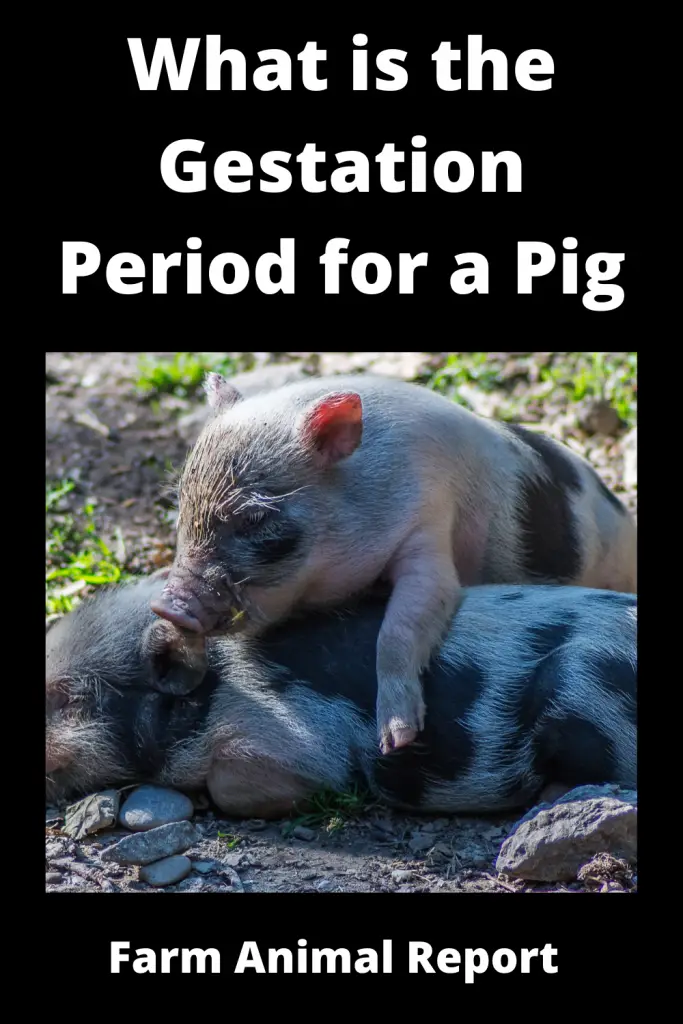
4. Lactation(milk feeding):
Sow(female pigs) stay in the farrowing area and are allowed to nurse their new piglets for about 3–5 weeks until the piglets are weaned from their care of breastfeeding.
5. Weaning the Piglet:
As soon as the piglets are weaned from their mothers(sows), the sows will then be taken back to the breeding region of the pigsty. And the piglets, on the other hand, will be taken to a weaner accommodation or space on the farm.
However, the pigs can only be transferred into the weaner accommodation, as soon as the pens or sheds have been cleared of any old pigs by the farmer(pig owner), by taking the pigs to the next available space or to market them out to buyers.
Overall, the sheds where these new piglets that have just been weaned will be accommodated, should be thoroughly cleaned, sterilized and if possible, left empty for at least a day, before these new sets of pigs take over space.
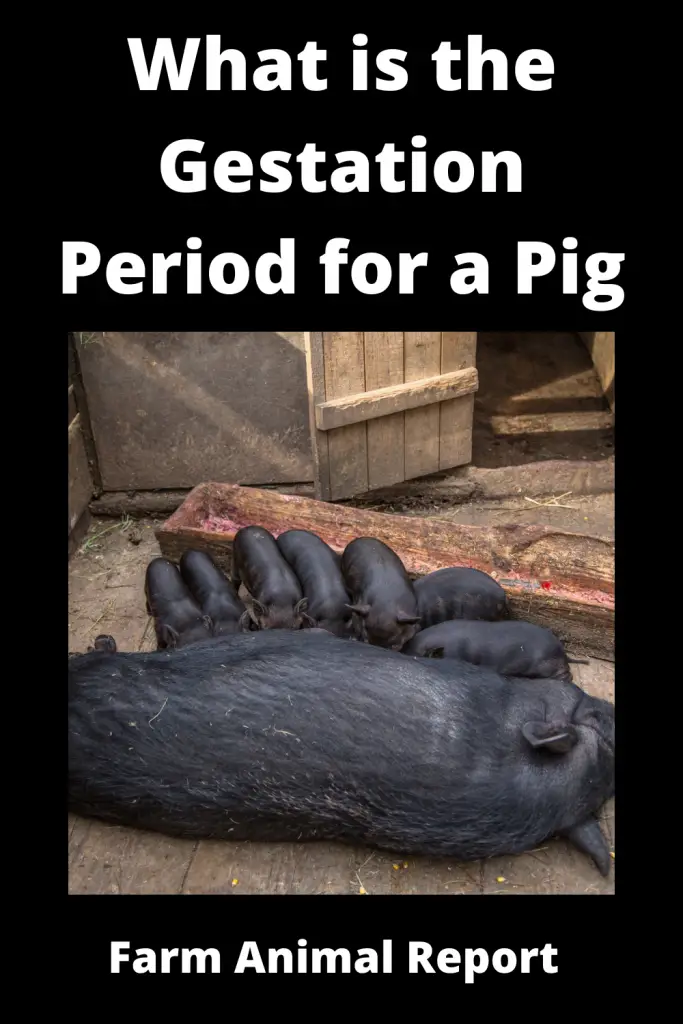
6. Growing the Pigs:
Based on how big and substantial the pig farm is, the owner can decide to raise the young pigs in another decent environment still within the premises, or a different location entirely if possible.
And they can afford to keep them there until they get to the weight where they’ll become suitable for marketing purposes.
In a nutshell, the gestation period of a pig is 114 days to be exact. And there are a lot of benefits to owning a pig farm because, unlike other livestock, pigs can produce up to two litter per year.
Gestation Table for Farm Animals
| Farm Animals | Days of Gestation | Lifespan - Years |
|---|---|---|
| Chicken | 21 | 7 |
| Horse | 330 | 20 |
| Cow | 284 | 15 |
| Pig | 112 | 10 |
| Sheep | 154 | 12 |
| Goat | 150 | 15 |
| Deer | 201 | 8 |
| Bison | 285 | 15 |
| Alpaca | 365 | 15 |
| Ostrich | 42 | 40 |
Feel Free to Share this or use it in your Research / Blog / Articles - If You could Give us a Link Back Appreciate it. God Bless Greg
And that will translate to more sales for you each year, at a lesser cost of expense.


